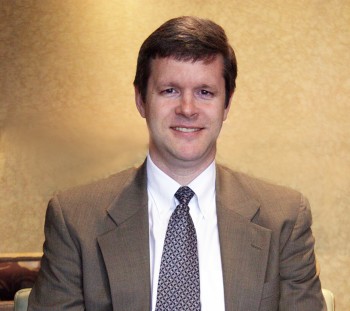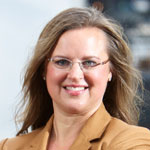 Being the chief of the state employees’ pension system and savings plans is not always a position that makes you popular, but Jim Potvin, the executive director for the Employees’ Retirement System of Georgia (ERS), faces his challenges with a calm demeanor backed by a successful tenure. Responsible for more than $14 billion in trusts and savings for 132,000 employees, Potvin holds the future of Georgia’s workers tightly in his grasp.
Being the chief of the state employees’ pension system and savings plans is not always a position that makes you popular, but Jim Potvin, the executive director for the Employees’ Retirement System of Georgia (ERS), faces his challenges with a calm demeanor backed by a successful tenure. Responsible for more than $14 billion in trusts and savings for 132,000 employees, Potvin holds the future of Georgia’s workers tightly in his grasp.
What drew you to the retirement field?
It certainly wasn’t something I grew up wanting to do, but as I was networking for my first job, I discovered the field and thought it was interesting. I wound up working as an in-house retirement-plan administrator for a large Fortune 500 company. The job was very hands-on, and, as a result, I began to realize the impact my work had on people’s lives that went beyond any one job. Retirement can be great, and also very stressful. Since that time, I’ve made it my goal to make the process as easy and seamless as possible for my customers.
How has your professional course impacted your current role?
When my first job was outsourced, I began working as a retirement consultant with a focus on special projects, such as implementation of best practices for companies struggling with internal issues. From there, I joined a third-party administrator before coming to ERS. My varied private-industry experience gave me a solid base to engage with ERS on a much more strategic level and create more positive results for its members. I had administered many plans under many sponsors and saw numerous administrative models, so I was able to cull the best of the best to bring to ERS.
Give an example.
My background trained me to look for ways to increase efficiencies, including standardized procedures and automated environments. Standardized data submission is very important for us since there are particular ways and formats we need data submitted, but we have hundreds of employers sending data for thousands of employees. Since I’ve been with ERS, however, we’ve made great strides in the way our various groups we work with submit data including adding web-based submission.
How is working for the government sector different?
At ERS, we view our year seasonally. The first three months of the year I spend at the state capitol, where I fulfill the role of chief lobbyist for ERS during the Georgia legislative session. Because our plans are statutory, any amendments or additions to our plans have to be passed as law. In spring, work begins on strategic planning and budget and goal setting for our new fiscal year. After our year end on June 30, we work on reporting, [which includes] our audit report, Comprehensive Annual Financial Report, and plan-valuation reports. The biggest change, however, has been adjusting to a much more public role. My position requires me to be the face of ERS to all our constituencies, which can range from testifying before lawmakers in public hearings to maintaining productive working relationships with staff, vendors, and other agencies.
What’s your biggest day-to-day challenge?
I am tasked with many decisions that can affect thousands of people, and it’s impossible to make everyone happy. It’s a big responsibility to deliver healthy, secure pension funds to such a large group, but I have learned to focus on developing solutions that meet the majority of the needs involved. The past few years also have been more stressful for those seeking retirement as they have had to wonder if they will have the financial ability to retire; however, I see that stress as an opportunity to positively impact people’s lives through educating them on the best ways to utilize our plans to meet their goals.
How do you continuously stay relevant to your customer?
One of our big initiatives now is improving the customer experience through better communication, so we’ve been looking at innovative ways to reach people through multiple channels. Specifically, in 2012, we introduced educational webinars, which can be accessed statewide with topics that are relevant not only to those close to retirement but also to new employees who are just starting their retirement planning journey. We want to reach out to people in the ways—and with the information—that suits them best.
What other new initiatives are on the horizon?
When I became director, the staff was very specialized, but I believe in a generalist approach, because it broadens the employee’s skill set while giving the organization flexibility in ways employees can serve. As a result, I’m working on reorganizing member services to provide this flexibility. We also want to continue to educate our customers about the retirement process—it’s hard for people to focus on something that is 30 years away, but the reward in the end is worth it.

